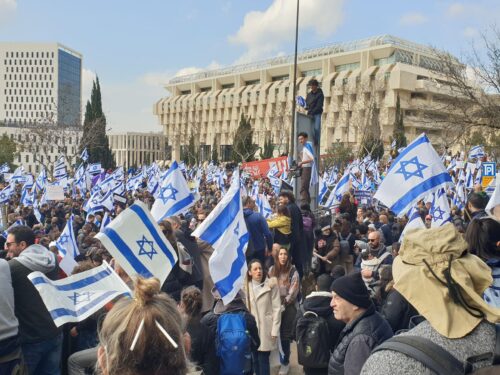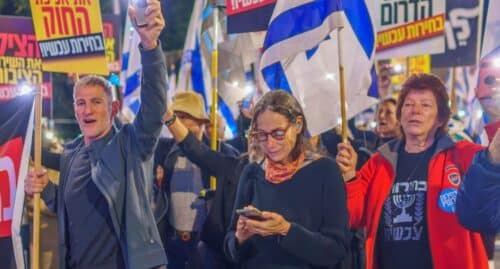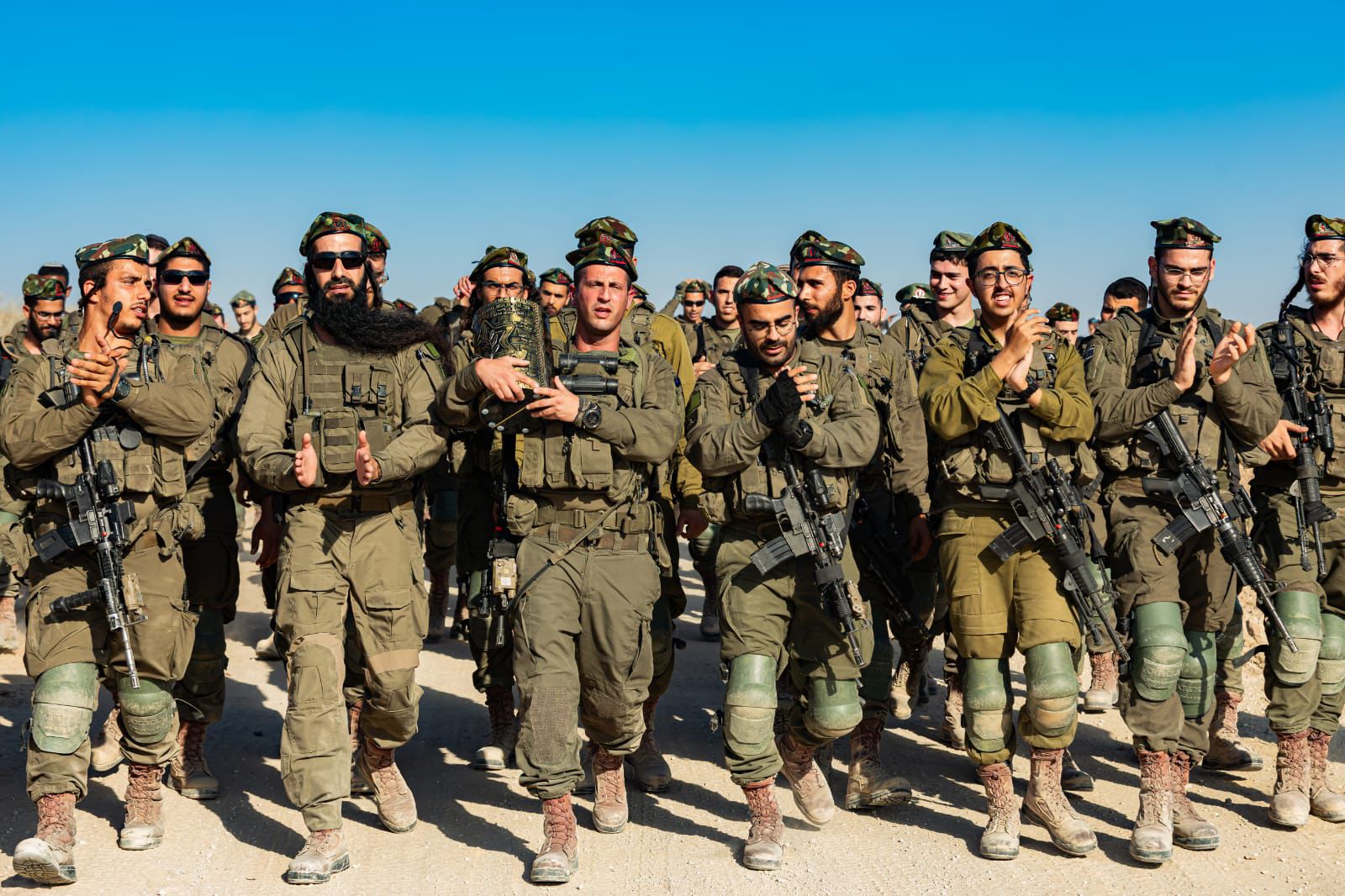
Major (res.) Yossi Levi testifies that he has been an Israeli for 15 years. As far as he is concerned, this count of “national years” began the day he enlisted in the IDF. “Before I joined the army, I identified exclusively as ultra-Orthodox,” he says. “To me, concepts such as ‘Israeli’ or ‘Zionist’ belonged purely to the secular world and were strictly off-limits. There was nothing to talk about serving in the IDF at all – it was completely not in my plans. But today I can say with all my heart that the decision to enlist was the best step I took in my life.”
First of all, a security imperative: the importance of enlisting ultra-Orthodox in the IDF
Yossi practically stumbled on his enlistment. Exactly at a time when he was beginning to feel that studying in yeshivot (religious colleges) did not allow him to reach his full potential, he met a recruit from the Netzah Yehuda battalion, and was persuaded to give the military option a chance. Once in the army, he began climbing the ranks, reaching command and officer positions. Today, he is an infantry officer in active reserve duty. Levi is about to complete the battalion commander program, after which he is expected to attain the rank of lieutenant colonel and be given the command over a combat reserve battalion. At the same time, he serves as the Director General of Netzah Yehuda, an NGO that is dedicated to the support of ultra-Orthodox soldiers serving in the IDF, and helps ultra-Orthodox who have completed their service integrate into civil society.
As one who has served in the IDF for many years, and is even authoring a doctorate on ultra-Orthodox conscription, he can attest to the fact that the army provides young ultra-Orthodox with important tools for life – from instilling values such as work ethics and personal responsibility, to professional knowledge and practical experience. It is equally clear to him that the army has also benefited greatly from the integration of ultra-Orthodox into its ranks, especially in the current period in which the shortage of combat personnel has become a major security issue.
“The integration of the ultra-Orthodox into the IDF has two chief aspects: social and security,” he explains. “In recent years, the IDF has been mustering out many units, scaling down its manpower, and it has become very difficult to advocate security demands. There was a sense that there is really no operational justification for the enlistment of ultra-Orthodox, and the demand thereof stems mainly from the desire to establish a more egalitarian society. All of this was true until the Gaza War. Today, every member of the ultra-Orthodox community understands all too well that there is a significant need to boost the IDF’s rank and file, and that this is a national imperative of the highest order. This doesn’t mean there can be an en mass enlistment of the ultra-Orthodox, but they do understand that this is a real security demand, which is something that couldn’t really be argued before the war.”
Kashrut is just an excuse: the barriers that turn the ultra-Orthodox against conscription
Maj. (res.) Yossi Levi’s claims indicate that, for the most part, the ultra-Orthodox community understands the importance of the military service, but nevertheless, there are various obstacles to the expansion of conscription to this sector.
According to Levi, one of the main obstacles is related to the manner in which the discourse on ultra-Orthodox conscription is conducted. “The current public discourse on the subject is such that does not understand the intricacies of ultra-Orthodox society,” Levi states. “This is especially evident when we talk about equality. Israelis think that this is a universal value, but this value is simply irrelevant in ultra-Orthodox society. This is a society that is not governed by the value of equality – not between men and women, or between rabbi and student – so it was never a notion that we had to uphold. Therefore, when you mention to the ultra-Orthodox the need of ‘sharing the burden,’ it only deters them. Similarly, it is also incorrect to talk to them about the importance of protecting the State of Israel, because they do not see themselves as part of the State to begin with. On the other hand, if we talk to them about the importance of protecting the people of Israel – this is something they can get behind.”
Another major obstacle, according to Levi, is the fear of losing the ultra-Orthodox identity. “The biggest fear is that young people will adopt secular or Western values, and replace their ultra-Orthodox identity with an Israeli identity,” he explains. “You have to understand that the ultra-Orthodox see themselves as the keepers of the flame. As far as they are concerned, the overall purpose of the Jewish people is to preserve tradition down the generation line, and this is done with the help of those who dedicate their lives to the study of Torah. In the ultra-Orthodox view, in order to keep the flame burning, we must first keep the young people within the sector, and that is why we are so afraid of dropping out of religion. When we see the various sectors, such as the national religious or the national ultra-Orthodox, which are more involved in general society, we see that dropout rates among the ultra-Orthodox are indeed the lowest. The conclusion that many draw from this is that in order to preserve tradition, one must distance oneself from any external influence, and this is one of the reasons for the strong objection to enlistment in the IDF.”
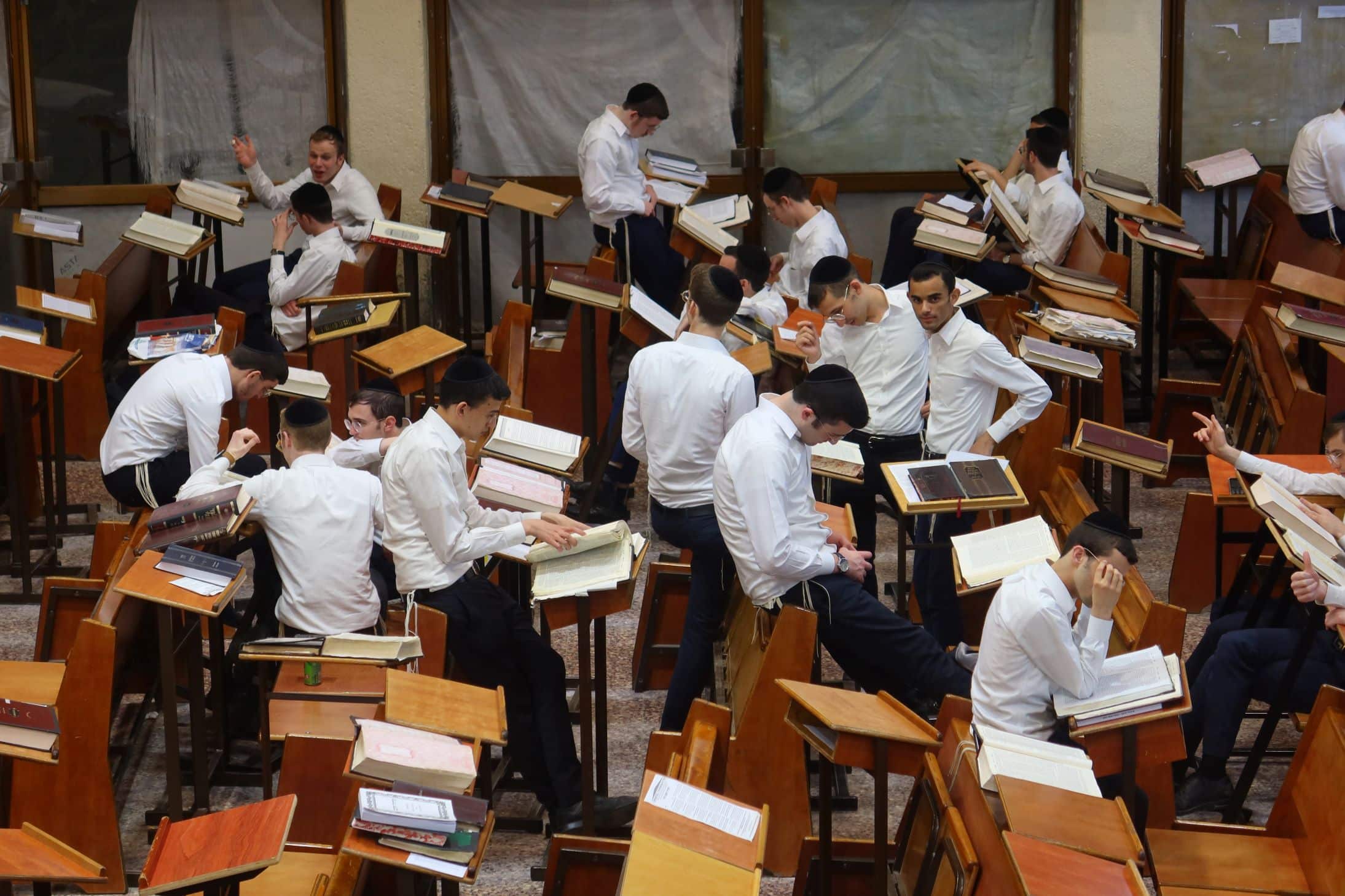
Another barrier concerns the negative attitude that has become entrenched in ultra-Orthodox society toward enlistment in the IDF, so much so that oftentimes even when a young ultra-Orthodox man does wish to enlist, he will not do so simply because he fears repercussions – excommunication for one – from the Ultra-Orthodox society and even his family. “When you grow up in ultra-Orthodox society, you are instilled with one central value: the study of Torah,” Levi explains. “As far as the ultra-Orthodox community is concerned, anyone who doesn’t study Torah is second class members of the community. One of our struggles is to turn ultra-Orthodox soldiers into ‘first class’ members. The way to do this is only by expanding the number of ultra-Orthodox soldiers. This will normalize military service and turn it into a matter that is not only legitimate but even appreciated. If today only about 1,000 ultra-Orthodox men enlist each year, it means that the average ultra-Orthodox person knows perhaps one soldier, and probably not someone close. On the other hand, if we succeed in recruiting even just a third of the ultra-Orthodox population that is eligible for enlistment, this will mean that every ultra-Orthodox home will have a soldier. When that happens, the entire attitude in the ultra-Orthodox society toward soldiers will change, and we will see both an increase in enlistment and a decrease in the unfortunate phenomenon of ultra-Orthodox soldiers becoming excommunicated.”
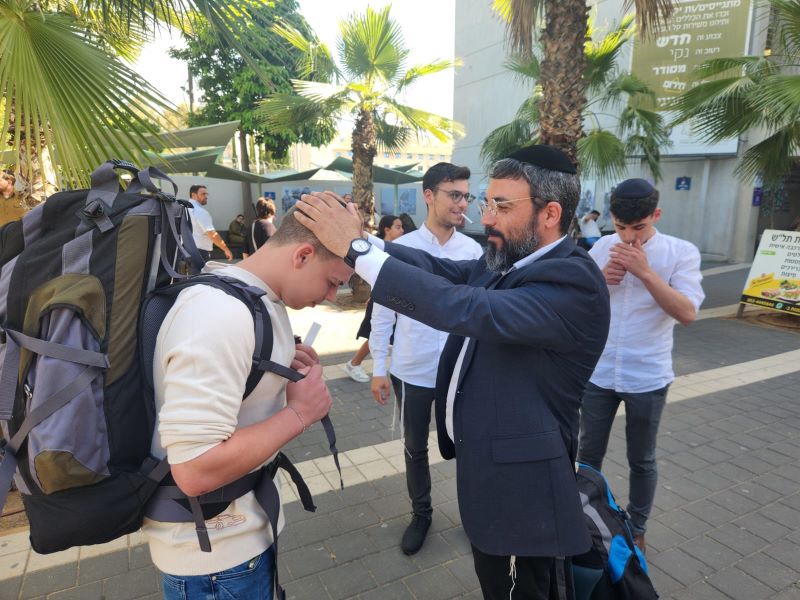
What about objective obstacles such as the need to observe the kashrut laws or separation of men and women?
“People tend to think that these are the reasons that deter the ultra-Orthodox from enlisting, but that’s not really the case. Let’s start with kashrut (Jewish Orthodox dietary laws) – all units in the army maintain kashrut, and units designated for ultra-Orthodox maintain strict (Mehadrin) kashrut at the most exacting levels, so, for the most part, there really shouldn’t be a problem. Regarding gender separation – it is indeed a complex issue because an ultra-Orthodox Jew will not serve in a place where women serve. However, there are units that are designated for men only, so this should not constitute a problem either. When we examine all these excuses in depth, we see that they can all be shelved. The ultra-Orthodox can and should serve, but the army, for its part, is obligated to provide them with all the necessary accommodations.”
Such as?
“We insist on five main principles: Mehadrin (strict) kashrut, gender separation, prayer time, study time and an ultra-Orthodox lifestyle – that is, a non-explicit environment, devoid of topics of conversation that are considered inappropriate in the ultra-Orthodox culture. In order for an ultra-Orthodox to feel comfortable in the IDF, he has to receive this whole package.”
Can these adjustments hurt other demographics that serve in the army, namely women?
“The IDF is the largest organization in Israel, with the ability to make adjustments to one sector without infringing the rights of another. That is why we encourage the establishment of dedicated homogeneous ultra-Orthodox units. There is a tendency to see sectoral and single-gender units as a negative thing, but in practice, such units allow the ultra-Orthodox to integrate into the army without causing the exclusion of other serving populations.”
The goal: the recruitment of 22,000 ultra-Orthodox
Recently, the IDSF HaBithonistim movement published Plan 8000 – a proposal for the enlistment of ultra-Orthodox society in the security service. This plan addresses the need to recruit 8,000 ultra-Orthodox men to serve in the IDF, the police and additional security bodies as early as the upcoming year. To implement this, the IDSF offers four main service programs: service in the IDF, service in the Israel Police or Border Patrol, service in the search and rescue forces, and service in the armaments industry.
Maj. (res.) Yossi Levi had read the plan in depth and supports most of the points it touches upon, but he also has some reservations – the first relates to the number of ultra-Orthodox soldiers that must be recruited. “Security experts are talking about 8,000 soldiers, I’m talking about 22,000,” he says. “Today, there are 66,000 ultra-Orthodox men aged 18-24 who do not serve in the IDF, and at least a third of them are suitable for enlistment even in the eyes of the great leaders of the Orthodox communities, and that third is the target audience as far as I’m concerned.”
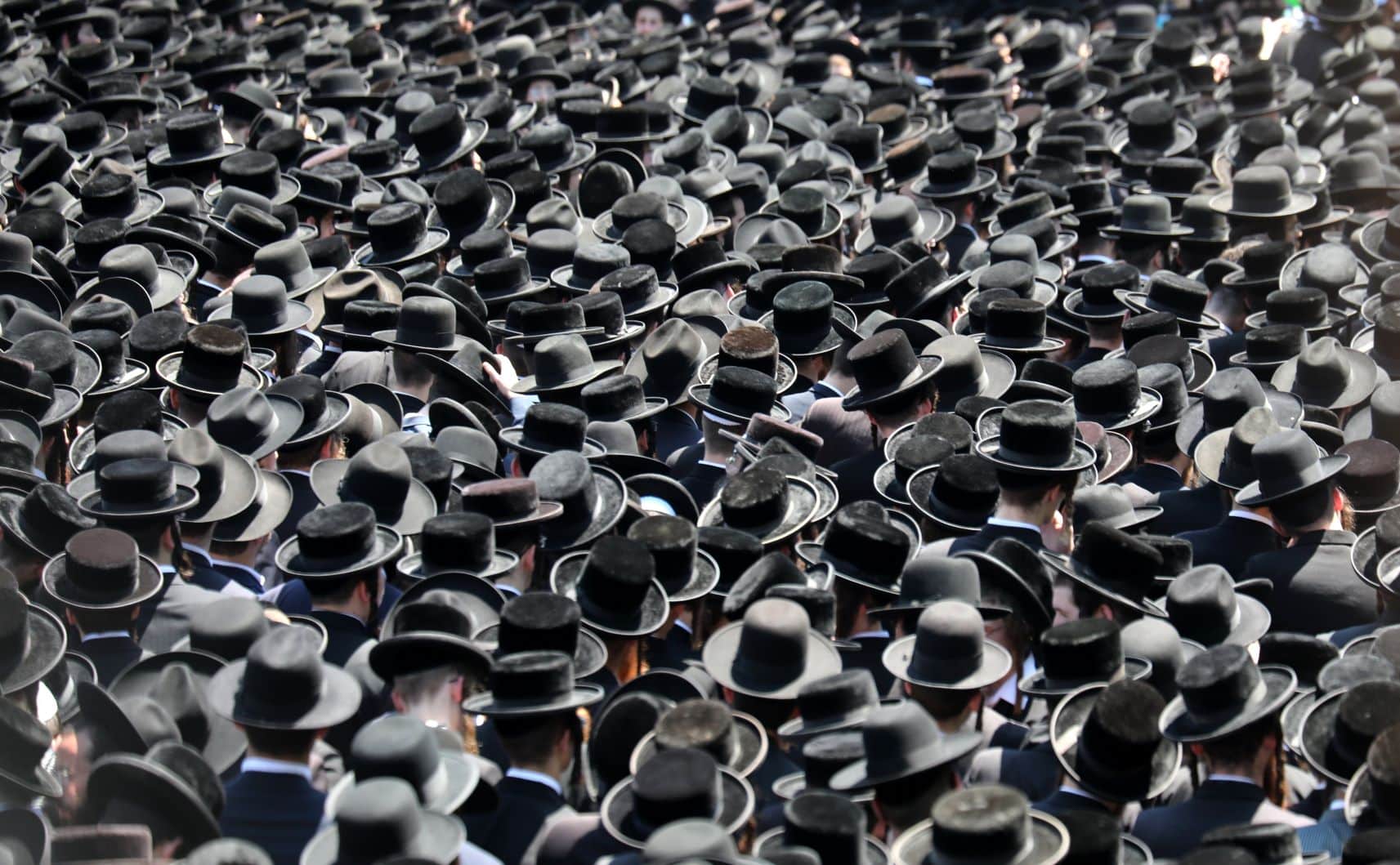
In Levi’s opinion, one way to encourage ultra-Orthodox recruitment is to expand the IDF’s service offerings. This understanding is also at the basis of the IDSF HaBithonistim movement’s proposal, Thus, each of the recruitment tracks presented in the proposal also includes several sub-tracks. The IDF enlistment program for ultra-Orthodox men, for example, includes designated combat units such as the Netzah Yehuda Battalion. In addition, it was suggested to establish the first ultra-Orthodox brigade that would operate as a dedicated security force along the Seam Line – the security separation zone between Palestinian and Jewish population areas in the Jordan Valley and Judea and Samaria. “Such a border enforcing division offers two main advantages,” Yossi Levi elaborates. “First of all, it allows for a softer integration into the IDF, because the operational training there can be shorter and less taxing physically. Beyond that, an important matter of perception figures into this option – ultra-Orthodox Jews who serve in the Jordan Valley or Judea and Samaria will de facto be protecting their home because many of them live in the area, and that alone connects them emotionally to the mission.”
Another sub-track proposed for the IDF Ultra-Orthodox enlistment plan is service options in the Home-Front forces, in a format of staggered weeks of service and religious studies. According to Levi, this idea is actually not very advisable simply because a week-long absence from military duty might compromise continuity and performance. As far as he is concerned, the preferred alternative is to allow a format of half a day of service and a half-day of study. “This format,” he explains, “can allow the soldiers to still get a lot of study time, while at the same time – remain in the system and maintain continuity of service.”
Another proposal included in Plan 8000 is the recruitment of Ultra-Orthodox into Israel Police, Border Police or the National Guard. According to Yossi Levi, the great advantage of this track lies in the fact that many ultra-Orthodox communities hold a better opinion of the civilian enforcement forces than the IDF, hence, integration in those forces could be more comfortable for some ultra-Orthodox.
Similarly, he supports a recruitment initiative of ultra-Orthodox men to munitions factories that are expected to be built as part of the lessons of the Gaza War. According to Levi, such a service will both connect the ultra-Orthodox to operational activity while enabling them to acquire a profession. His hope is that this kind of service will be done in uniform, in order to normalize the use of uniforms in ultra-Orthodox society.
The only track in the 8000 plan that Yossi Levi has reservations about is the recruitment track for rescue organizations the likes of as ZAKA disaster response search and rescue NGO and United Hatzala emergency medical response NGO. In his view, this volunteering is welcome and worthy of recognition, but it cannot be an alternative to military service. According to Levi, young people up to the age of 22 should enlist in a security body such as the IDF or the police, and perform full-time service there. However, since ultra-Orthodox Jews who have already passed this age will probably not enlist at all, he agrees that they could be appropriate candidates for recognized national service in one of the rescue organizations.
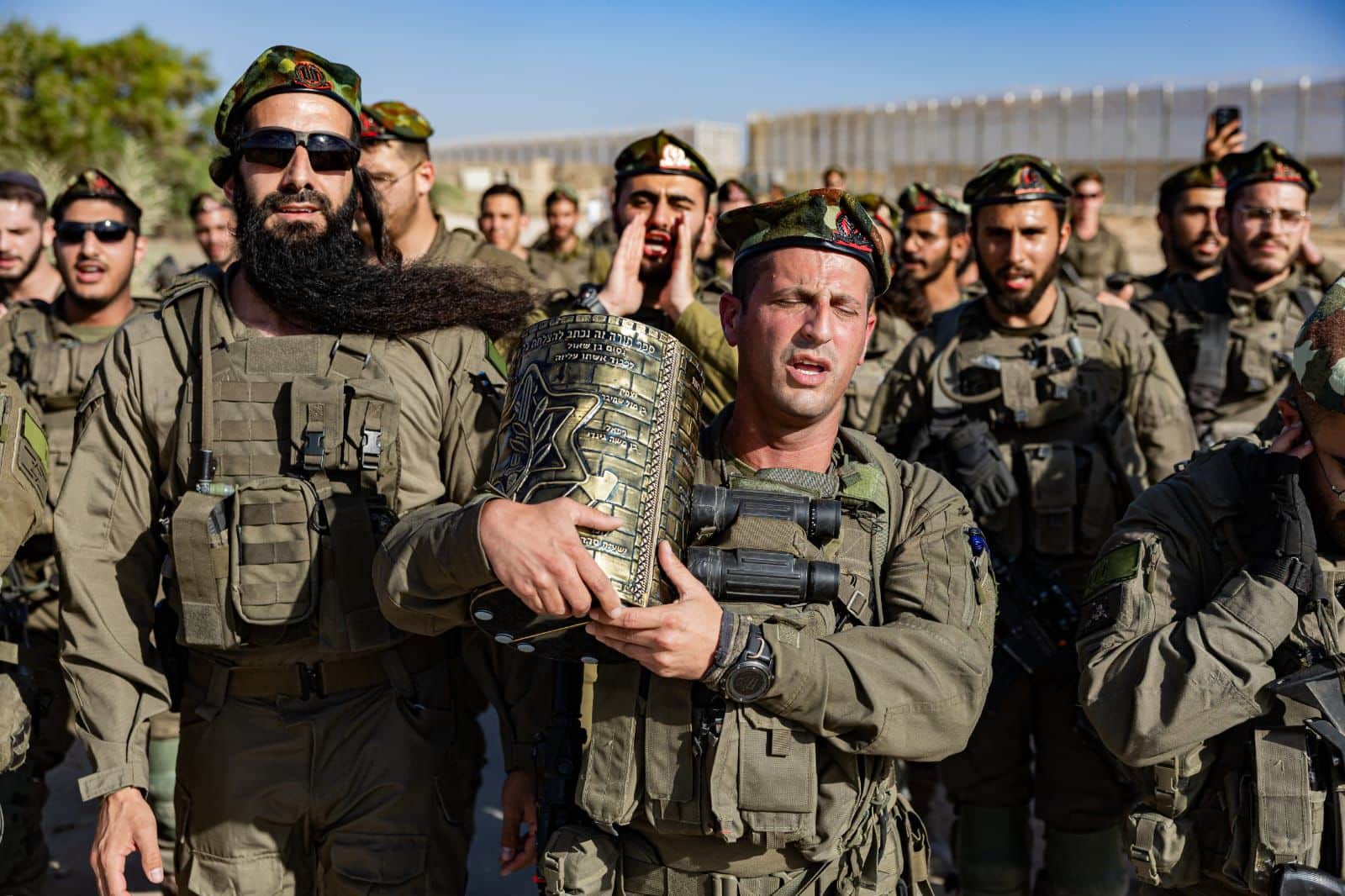
Beyond the public discourse: Conscription of Ultra-Orthodox in practice
Major Levi has been active in the military system for a decade and a half. Over the years, he has seen the issue of the integration of the ultra-Orthodox into the IDF take form – not only in public discourse but also on the ground. His conclusion is that it is possible – and indeed necessary – to integrate ultra-Orthodox into the IDF, and that such a move – if done correctly – could contribute to both the state and ultra-Orthodox society.
In order to promote the enlistment of ultra-Orthodox men in the IDF, or any other national security service, Yossi Levi emphasizes the need for an authorized civilian body to oversee the process. “The army is constantly changing and there is a high churn rate of commanders, so you can’t rely on the IDF alone to upkeep the know-how and maintain the processes,” he explains. “In order to carry out long-term support for ultra-Orthodox recruitment, you need a civilian body that knows that society from the inside out, and can provide support to ultra-Orthodox soldiers even after their discharge.”
Another conclusion Levi had drawn from his many years of enterprise is that in ultra-Orthodox society, there is no second chance. “When establishing a conscription program for the ultra-Orthodox, it is very important that it be perceived from the onset as a program that is tailored to the specific needs of the ultra-Orthodox way of life, such that allows them to preserve their religious identity,” he explains. “If we succeed in correctly branding the program from the very beginning, and establish trust with the ultra-Orthodox community, that’s where our victory will lie.”




